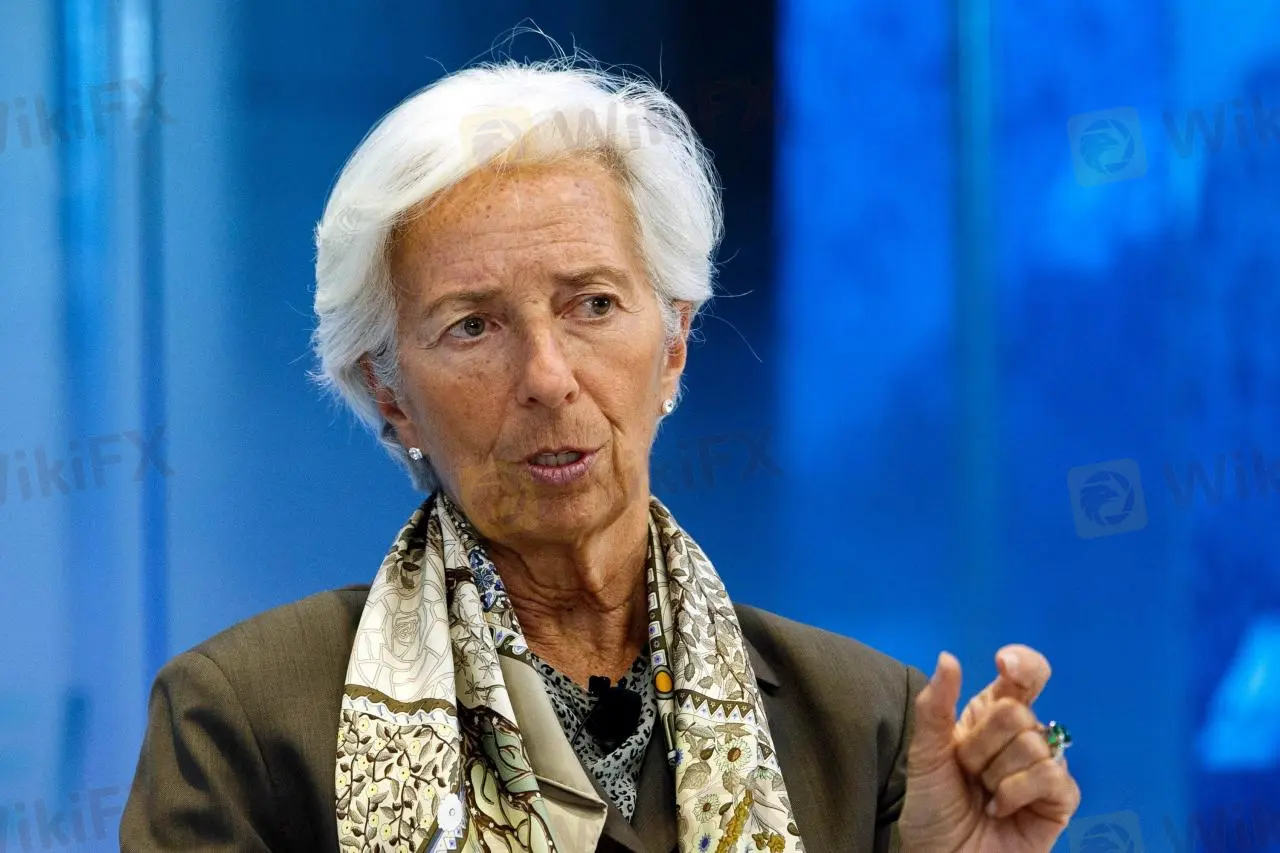简体中文
繁體中文
English
Pусский
日本語
ภาษาไทย
Tiếng Việt
Bahasa Indonesia
Español
हिन्दी
Filippiiniläinen
Français
Deutsch
Português
Türkçe
한국어
العربية
ECB Inflation Goal Looks Ripe for Change in Lagarde’s Review
Abstract: Almost 90% of analysts expect ECB to alter inflation strategy Concerns about the risks to the economic outlook have eased
European Central Bank watchers are virtually convinced President Christine Lagarde will change the institutions inflation goal for the first time in 17 years as she attempts to achieve the price stability that eluded her predecessor.

Almost 90% of respondents in a Bloomberg survey predicted the ECB will officially alter its strategy to give equal weight to too-low and too-high inflation. Half said the current aim of “below, but close to, 2%” will be made more precise.
The ECB is trying to understand why inflation has fallen short despite years of negative interest rates and 2.6 trillion euros ($2.9 trillion) of bond purchases under Mario Draghi, who held the presidency from 2011 until late last year. Clarifying or changing the definition of price stability might help policy makers hit their mandate, though it also risks accusations that theyre simply moving the goalposts.
Building Expectations
Economists are developing views on results of ECB strategy review
With the survey also showing economic concerns easing, Lagarde should have the headroom to conduct the most comprehensive reappraisal since at least 2003 -- lasting most of this year and, in her words, having “no preconceived landing zone.” Shes told Governing Council members she wants to get the process under way at the Jan. 23 policy meeting.
Her colleagues have staked out their positions for months, signaling broad support for an evaluation of the inflation goal but no obvious consensus on what should be done with it.
Compared with the previous survey in December, an increased share of economists said the ECB will set a more precise inflation goal, and give itself more flexibility to let inflation overshoot. More also predicted that the institution will pick a new inflation measure after growing criticism that the current one from the European Unions statistical office underweights major expenses such as housing.
“One plausible outcome of the review is a target range for inflation with a midpoint of 2%,” said Kristian Toedtmann, an economist at DekaBank in Frankfurt. “This would give the Governing Council the flexibility to decide case by case whether some overshooting is appropriate or not.”
Lagarde has also promised to consider how the ECB can aid the fight against climate change, calling it mission critical for the institution. It‘s been a thorny topic for some policy makers though, amid concerns the central bank’s focus on price stability may be diluted. More than half of respondents said the ECB wont take the impact of global warming into account when setting its policy this year.
In fact, most predicted that not much will change at all in 2020, or in most of 2021. They expect quantitative easing, which was controversially resumed in November, to stay at 20 billion euros a month and be halted around the end of next year. Interest rates are seen as being raised by the second quarter of 2022.
ECB Timeline
At least the clouds that have darkened the economy for almost two years appear to be lifting slightly. The level of concern over threats including recession and trade war fell to the lowest since April 2018. The U.S. has signed a “phase-one” trade deal with China, and European economic indicators have shown signs of stabilizing, though the U.S. military strike on Iran this month has exacerbated Middle East tensions.
That raises the prospect of a debate at the ECBs policy meeting over its description of the risks to its outlook as “tilted to the downside.” Lagarde said in December that such risks have become “somewhat less pronounced,” and Executive Board member Yves Mersch said this week that they are “less skewed.”
Risk Profile
Threats to euro-area economy continued to recede
“Looking forward, the strategy review could be the most excitement well get from the ECB this year,” said Carsten Brzeski, an economist at ING in Frankfurt. “As long as the euro-zone economy moves rather horizontally and some governments start to step up fiscal stimulus, there will be no need to alter the monetary-policy stance.”
Disclaimer:
The views in this article only represent the author's personal views, and do not constitute investment advice on this platform. This platform does not guarantee the accuracy, completeness and timeliness of the information in the article, and will not be liable for any loss caused by the use of or reliance on the information in the article.
WikiFX Broker
Latest News
Germany's Election: Immigration, Economy & Political Tensions Take Centre Stage
WikiFX Review: Is IVY Markets Reliable?
IG 2025 Most Comprehensive Review
Construction Datuk Director Loses RM26.6 Mil to UVKXE Crypto Scam
SEC Drops Coinbase Lawsuit, Signals Crypto Policy Shift
Top Profitable Forex Trading Strategies for New Traders
EXNESS 2025 Most Comprehensive Review
ED Exposed US Warned Crypto Scam ”Bit Connect”
New SEC Chair Paul Atkins Targets Crypto Regulation Reform
WikiFX Elites Club —— Fun Spring Camping in Malaysia Successfully Concluded!
Currency Calculator







